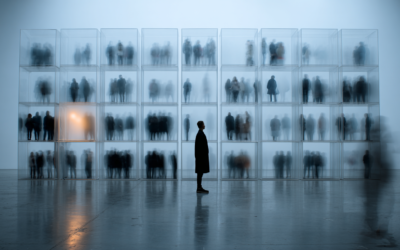In today’s information-saturated world, discerning between what we truly know and what we think we know is becoming increasingly challenging. A recent study published in Cognition by Felix Speckmann and Christian Unkelbach delves into this phenomenon, exploring how repetition can create an illusion of knowledge.
The Truth Effect
The study investigates the “truth effect,” which suggests that repeated exposure to a statement increases our belief in its truthfulness, irrespective of its actual accuracy. This effect is amplified by “processing fluency,” where our brain interprets the ease of processing repeated information as an indication of its veracity.
Experiments and Findings
Experiment 1: Involving 194 participants, this experiment had individuals evaluate 50 trivia statements. They were shown 25 statements randomly and later asked to judge whether they knew these statements beforehand. Results showed a significant tendency to believe they had prior knowledge of repeated statements compared to new ones.
Experiment 2: This experiment used false statements, and 191 participants assessed whether they knew these false facts beforehand. It was found that repetition also led to a small but notable increase in the belief of prior knowledge, even when the information was false.
Experiment 3: Adding a phase where participants specified the source of their knowledge, this experiment reinforced the illusion of knowledge effect. Even when asked to reconsider their initial judgment, few participants changed their minds about knowing the repeated statements.
Experiment 4: Replicating the design with false statements, this experiment further highlighted the persistence of the repetition effect, as repeated statements were more likely to be reported as known, with minimal corrections.
Implications of the Study
 The implications of these findings are profound, especially in the context of the digital age where misinformation spreads rapidly. Social media platforms, often rife with sensational and emotionally charged content, exploit the truth effect, embedding misinformation deeper into public consciousness. Memory and knowledge illusions, including source amnesia, exacerbate this issue by leading individuals to believe they remember or know false information from credible sources.
The implications of these findings are profound, especially in the context of the digital age where misinformation spreads rapidly. Social media platforms, often rife with sensational and emotionally charged content, exploit the truth effect, embedding misinformation deeper into public consciousness. Memory and knowledge illusions, including source amnesia, exacerbate this issue by leading individuals to believe they remember or know false information from credible sources.
Combatting the Illusion of Knowledge
Understanding the mechanisms behind the illusion of knowledge is crucial for developing strategies to combat misinformation. Here are some approaches:
- Critical Thinking: Encouraging critical thinking and skepticism can help individuals evaluate the accuracy of repeated information more effectively.
- Source Verification: Emphasizing the importance of verifying information sources can reduce the impact of repeated misinformation.
- Education: Providing education on cognitive biases and the truth effect can make people more aware of how repetition influences their beliefs.
Conclusion
The study by Speckmann and Unkelbach sheds light on the cognitive biases that influence our perception of knowledge. As we navigate the vast landscape of information, being mindful of the illusion of knowledge and the effects of repetition can help us make more informed decisions and resist the lure of misinformation.
For further details, you can read the full study here: “Illusions of knowledge due to mere repetition”.
Additional Resources
- Cognition Journal: For in-depth studies on cognitive science and psychology.
- Critical Thinking Courses: Online platforms like Coursera and edX offer courses to enhance critical thinking skills.
- Fact-Checking Websites: Use resources like Snopes and FactCheck.org to verify information.
Understanding how repetition shapes our beliefs is a step toward greater cognitive awareness and resilience against misinformation. Let’s strive to be informed and critical consumers of information.



